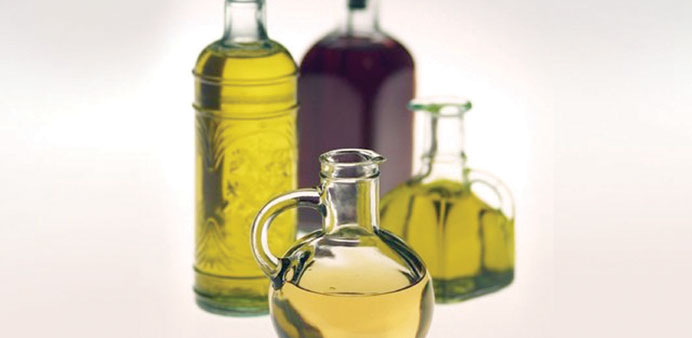By Barbara Quinn/The Monterey County Herald/TNS
I was doing my usual stop-fooling-around-and-write-your column dance with myself this week when I happened across an article in a recent issue of the Journal of the Academy of Nutrition and Dietetics. “Is vinegar an effective treatment for blood sugar control or weight loss?” the article began. I stopped fooling around to find out.
Vinegar is the product of a mixed fermentation of yeast followed by acetic acid bacteria.
Acetic acid is a “weak acid” compared to say, the strong hydrochloric acid produced by our stomachs to digest food. According to the Vinegar Institute (www.versatilevinegar.org ) a product sold as “vinegar” in the US must contain at least 4% acetic acid.
Balsamic vinegar, “aceto balsamico”, originated in the Modena and Reggio Emilia areas of northern Italy and is a dark condensed reduction of white Trebbiano grape juice. Traditional Balsamic vinegars from these areas are aged for 12 or more years and retain the coveted title of “Aceto Balsamico Tradizionale.”
There is no balsam (the resin in the sap of trees) in balsamic vinegar. Rather, this type of vinegar probably was named after the Latin word “balsamic” that describes restorative or curative properties.
Vinegar is a fermented product that in itself might be beneficial, say some experts. According to Tufts University Health and Nutrition Letter, the friendly acetic acid bacteria used to make vinegar infiltrates our guts with favourable “probiotics” that assist with digestion and the absorption of nutrients.
According to the review in the Journal of the Academy of Nutrition and Dietetics, some preliminary studies have shown that vinegar can help control blood sugars in people at risk for diabetes. Effects varied however, depending on the amount and type of carbohydrate eaten at a meal.
Adding vinegar to healthier carbs such as whole grains, vegetables and fruit was more favourable than dousing a sugar-laden beverage with vinegar.
Can vinegar help us lose weight? Maybe and maybe not. Some studies indicate that vinegar helps to suppress appetite, perhaps by slowing the transition of food through the digestive tract. Other studies found that high intakes of vinegar increased nausea in some people, however.
Most vinegars are surprisingly low in sodium while packing a huge flavour punch. Always check the label on “seasoned” vinegars, however; these might contain added sodium.
“Vinegars are part of a wholesome life,” says Dr Stephen Brabeck, board certified cardiologist and owner of Quail and Olive, a boutique of specialty oils and vinegars in Carmel Valley, California. They can be used on salads, as a marinade or in reduction sauces.
Nutritionally, a tablespoon of vinegar contains a measly 14 calories compared to 120 calories in one tablespoon of olive oil. Stop fooling around, and mix the two together. Delicioso!
♦ Barbara Quinn is a registered dietitian and certified diabetes educator at the Community Hospital of the Monterey Peninsula. She is the author of Quinn-Essential Nutrition, e-mail her at [email protected]

Some preliminary studies have shown that vinegar can help control blood sugars in people at risk for diabetes.
